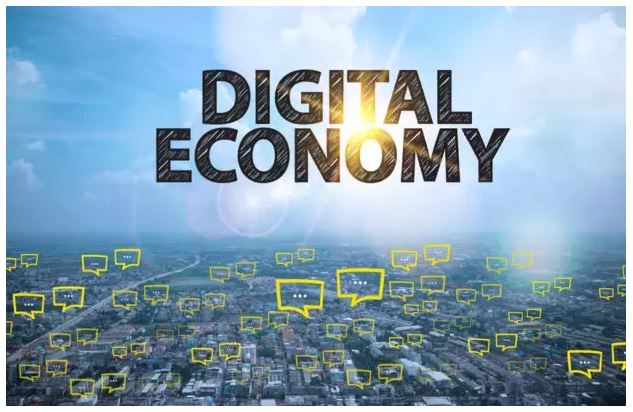Vietnam’s path toward a digital economy, digital society
Deputy Minister of Information and Communications Nguyen Huy Dung said Vietnam has vowed to develop a digital economy and digital society.
The Prime Minister has issued a strategy on developing a digital economy and digital society by 2025, with the vision towards 2030. Where is Vietnam in the world’s digital map when releasing the strategy?
I can say for sure that Vietnam is among the countries issuing the strategy on developing digital economy and digital society early.
Digital transformation was mentioned in the Politburo’s Resolution 52-NQ/TW. The Prime Minister issued the national digital transformation program in 2020, the national strategy on digital government development in 2021 and the national strategy on digital economy and digital society development.
In the current trend of digital economic development in the world, experts mention many new models, including blockchain. Is the technology a part of the Government’s digital economy development strategy?
Blockchain is a special highlight of digital economy, because the technology allows transactions to be made in an easy, transparent and safe way.
The role of blockchain in digital economy in the near future can be compared with essential technical infrastructure, like electricity, roads, schools and stations in traditional economy. That is why we can see the trend of switching transactions, payments and trade platforms from old infrastructure to Blockchain-based distributed infrastructure, with two-digit growth rates each year. Developing blockchain technology could be one of the strategies for Vietnam to develop a digital economy and make a breakthrough for Vietnam.
How is the national strategy on digital economy and digital society development built?
Vietnam’s national strategy on digital economy and digital society is the result of selective reference to international practice combined with domestic practice.
Developing digital economy and digital society is bringing the activities of people and businesses to the digital environment. The digital environment is a global environment. Therefore, the national strategy is built to clearly define the concept of digital economy and digital society.
Vietnam’s economy comprises three elements – ICT digital economy, which is the information technology industry and telecommunication services; platform digital economy which is the economic activities of digital platforms, online systems that connect demand and supply, and online services; and sectoral digital economy which means digital economic activities in different fields and sectors.
Vietnam’s digital society comprises eight major elements. First, the digital means which allow each citizen to have one smartphone to do what they want (all in one).
Second, digital connection which allows each household to have optic fiber to the home cable line and popularize mobile broadband connection.
Third, digital identity. Every citizen has a digital identity which can be authenticated easily from a distance, over the internet, instead of being physically present.
Fourth, every citizen has a digital account which serves payments for electronic and digital transactions.
Fifth, digital signature.
Sixth, digital addresses.
Seventh, digital skills.
Eighth, digital culture.
You have said that the strategy is built based on international practice and specific conditions of Vietnam. Could you please tell us what is original in Vietnam’s strategy?
Digital transformation is understood as bringing all activities of people, businesses and the Government into the digital environment in a safe way. I believe that the originality of Vietnam in digital economy and digital society development is bringing all activities of people, businesses and the Government into the digital environment with Vietnamese developed digital platforms.
The strategy names exactly 54 digital platforms. Of these, 35 digital platforms will be deployed in 2022.
We believe that the ‘success formula’ for Vietnam is ‘small, quick, near and flexible’, and the strategy shows the formula.
When people and businesses digitize, they will see benefits from the development of digital economy and digital society. Every person has the opportunity to become a digital businessperson, and each enterprise or business household can become a digital business.
The specific solution is taking full advantage and developing a network of technology firms. Vietnamese firms develop Make in Vietnam digital platforms, next to Vietnamese users.
Next, Vietnam will organize a community digital technology network, and through the community digital technology team bring digital platforms to people, and support people.
The last thing is the popularization and dissemination to all people through a wide communications system.
Could you please tell us the breakthrough point of the strategy?
The national strategy sets out specific tasks to develop nine fundamental elements, seven major sectors and eight groups of solutions.
One of the breakthroughs is institutional reform. It’s necessary to amend the Law on Electronic Transactions, lay down policies to promote online activities and make the activities faster, cheaper and safer. If so, people will automatically shift to activate the digital environment.
For example, if online public services are cheaper and faster, people and businesses will choose to use online public services.
Regarding digital infrastructure, the major solution is popularizing smartphones and broadband internet to every household, and popularizing cloud computing to businesses.
Regarding digital data, the task is developing master data as original data with the principle that data are collected, managed by single agencies and shared with other agencies. People only have to provide information once when using online public services.
Regarding cybersecurity, the key task is popularizing basic information security and digital signature services to people.
Thai Khang
Source: https://vietnamnet.vn/en/vietnam-s-path-toward-a-digital-economy-digital-society-2015758.html


 English
English




